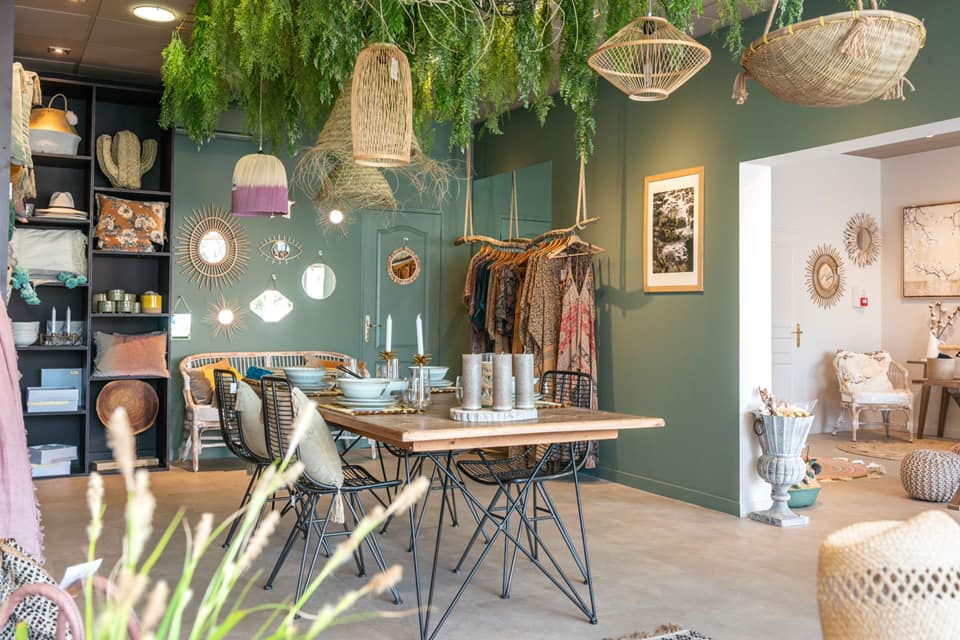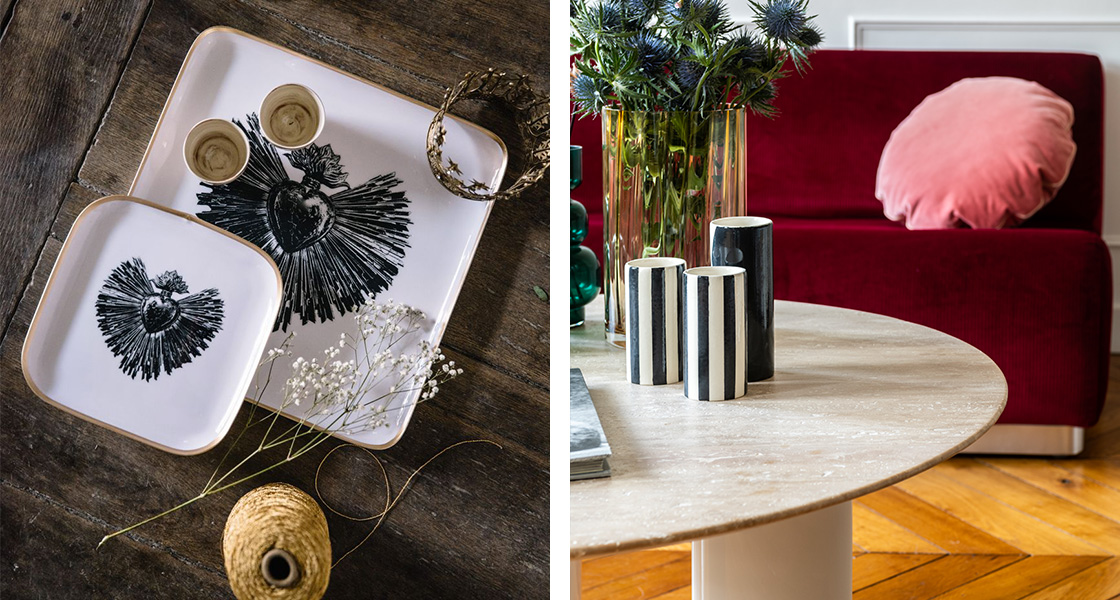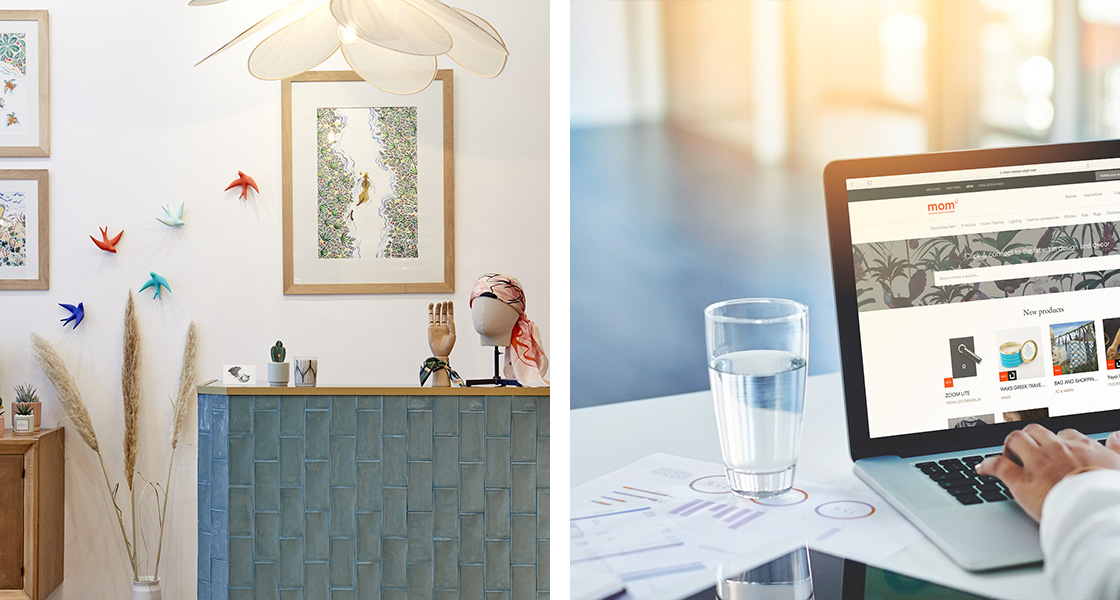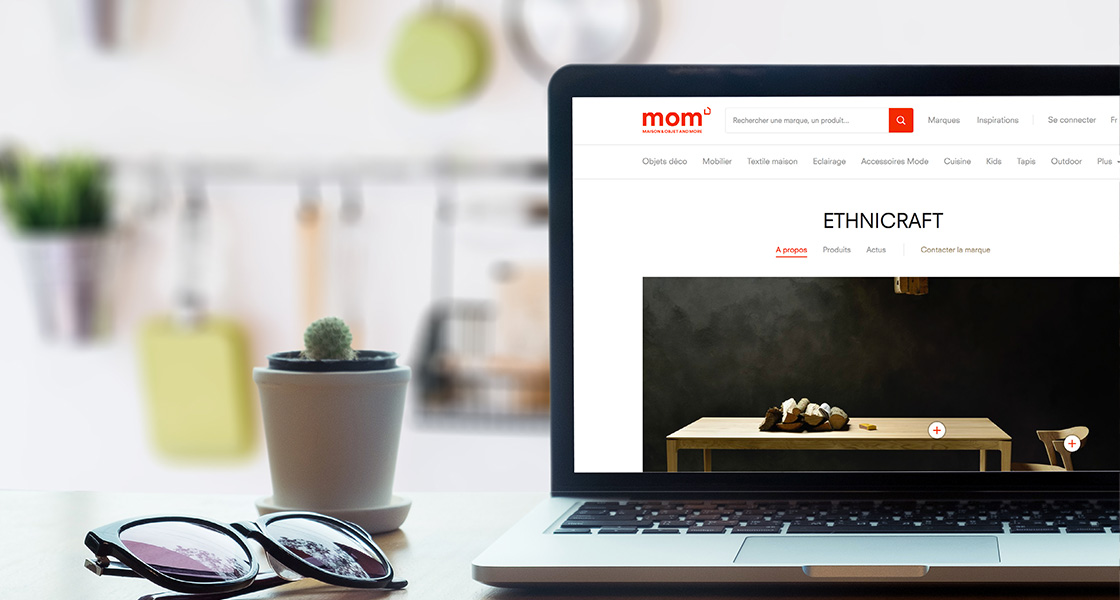ON / OFF
Published on 26 June 2020

Click-to-shop or in-shop? A return to buying local or enduring enthusiasm for online sales? A topic that had long since been laid to rest has been placed firmly back in the spotlight as a result of the recent crisis. Offline or Online? The answer is never simply just one or the other but rather an amalgamation of both. And that’s where the real questions begin. Time for a closer look.
"Basically, no online-only companies are profitable."
The man behind this assertion, quoted in a survey by FaberNovel, is Michael Preysmann, founder of clothing brand Everlane. They’re pretty surprising words coming from the boss of a DNVB, or “digitally native vertical brand”, whose entire business model is exclusively web- and mobile-based. Alibaba, the Chinese e-commerce giant, is investing in retail outlets. Amazon is opening book stores... Whilst the COVID-19 crisis came as a huge wake-up call for those yet to launch an e-shop, the strategies adopted by some of the digital economy’s biggest names serve as a reminder that brick-and-mortar is most certainly not dead and that, retail giant or local store, the way in which online and offline intertwine is driven by the firm’s background and level of maturity.

Back in 2015, La Seinographe was no more than an engaging Parisian lifestyle blog. But by September 2019, a store of the same name had opened in the trendy “South Pigalle” neighbourhood. Yet there was no 5-year business plan charting the path for this virtuous development. “Everything happened totally organically”, explains Marina Mussat, its founder. It all began with a market place, which Mussat considered to be the least risky way of catering for those who appreciated the small-scale productions showcased via her site. Pop-up stores then followed, which, having proved successful, inspired her to open a permanent store in conjunction with Mélissa Paszkiewicz, founder of paper and wallpaper brand Atelier Mouti. “I’ve discovered a whole new profession,” says Marina with a smile. “I love advising and assisting customers”.
The socialite family also made a name for itself online by taking us through the keyhole into the homes of young Parisian families, offering a peek at their one-of-a-kind interiors. When Constance Gennari, its founder, joined forces with Marianne Gosset to launch a range of furnishings and decor, opening a physical store wasn’t even on their radar. Both economically and historically speaking, setting up an e-shop was the obvious way to go. But when the “family” began to expand and started needing more space, they chanced upon the perfect venue that would tick every box as an office-come-showroom, staged as their home from home. Constance filled the curious space with her objects, benches, beanbags, coffee tables and cushions... that all sat alongside her flea market finds. The brand’s business nonetheless remains overtly digital,enabling the pair to reach an international client base that represents 30% of sales. Interior designers soon caught wind of their premises on rue Saint-Fiacre. But the shopping street most certainly isn’t one of the capital’s busiest, so customers often only find the shop having visited the virtual Instagram showroom first.

For Maison Bourgeoise’sfounder, however, things are slightly different. Helena Monnet,“great-granddaughter, granddaughter and daughter of a shop owner”, had always dreamed of opening a store, and creating an online outlet was inked into her business plan. It gave her the perfect way of engaging with a much wider audience than the one to be found in the charming but tiny Provençal town of Venelles. She does, however, offer a word of warning: “Our store attracted customers as soon as it opened, but it took us over a month to make our first online sale on launching the e-shop”. Setting up and running a website and managing social media presence may be an essential part of building a community, but they’re extremely time-consuming tasks.
Having a face-to-face retail outlet isn’t the only way of engaging with customers in the real world. Franco-Spanish children’s brand Nobodinoz, bohemian chic Belgian firm Bazar Bizar, and Wewood with its elegant made-in-Portugal furnishings are all extremely active online as well as being regular faces atMaison&Objet. The same goes for Bloon, a young mono-product brand whose ergo-active spherical chair, an adaptation of the “Swiss ball” used in Pilates, proved to be an instant hit. Initially presented as a prototype amongst the Maison&Objet “Best Ofs”, Bloon featured on the MOM digital platform before its creators, Raphaël Mille and Kévin Rayess, had even thought about investing in a stand. It was the perfect opportunity for Rayess, who initially trained as an osteopath, to offer a real-life demonstration of precisely why their ball chair was so good. “It’s a great way for new firms to demonstrate their viability”, he explains. The trade fair gave Bloon the opportunity to engage directly with interior designers, winning them over with the chair’s customisation potential and inspiring them, in the age of teleworking, to instantly incorporate it into clients’ homes.
During lockdown, online business has proved absolutely crucial for all concerned. The number of visits on the MOM digital platform rose by 13%, as did the number of members. The survey conducted amongst our community during this period has shown that 31% of retailers successfully maintained their online sales volumes, with 21% even seeing sales rise, whilst 22% used the time wisely by launching an online sales channel. “I rekindled a blog that had been basically lying dormant, and began posting articles more regularly,” explains Marina Mussat. “Within just two weeks, I’d kick-started a tool that’s currently generating as much turnover as our store”. Helena Monnet was also able to keep her business ticking over with the help of online sales and herinterior design projects, but she also notes that customers have now flocked back to the store. In the first two weeks that followed the lifting of lockdown, the shopping frenzy came as much as a surprise as her first customers’ heartening and heartfelt support: “They told me to hang in there and said they were with us every step of the way”. Maybe one day they’ll end up calling her by her first name in the same way her most loyal customers do. Now that’s the kind of experience you can only find in-store.

